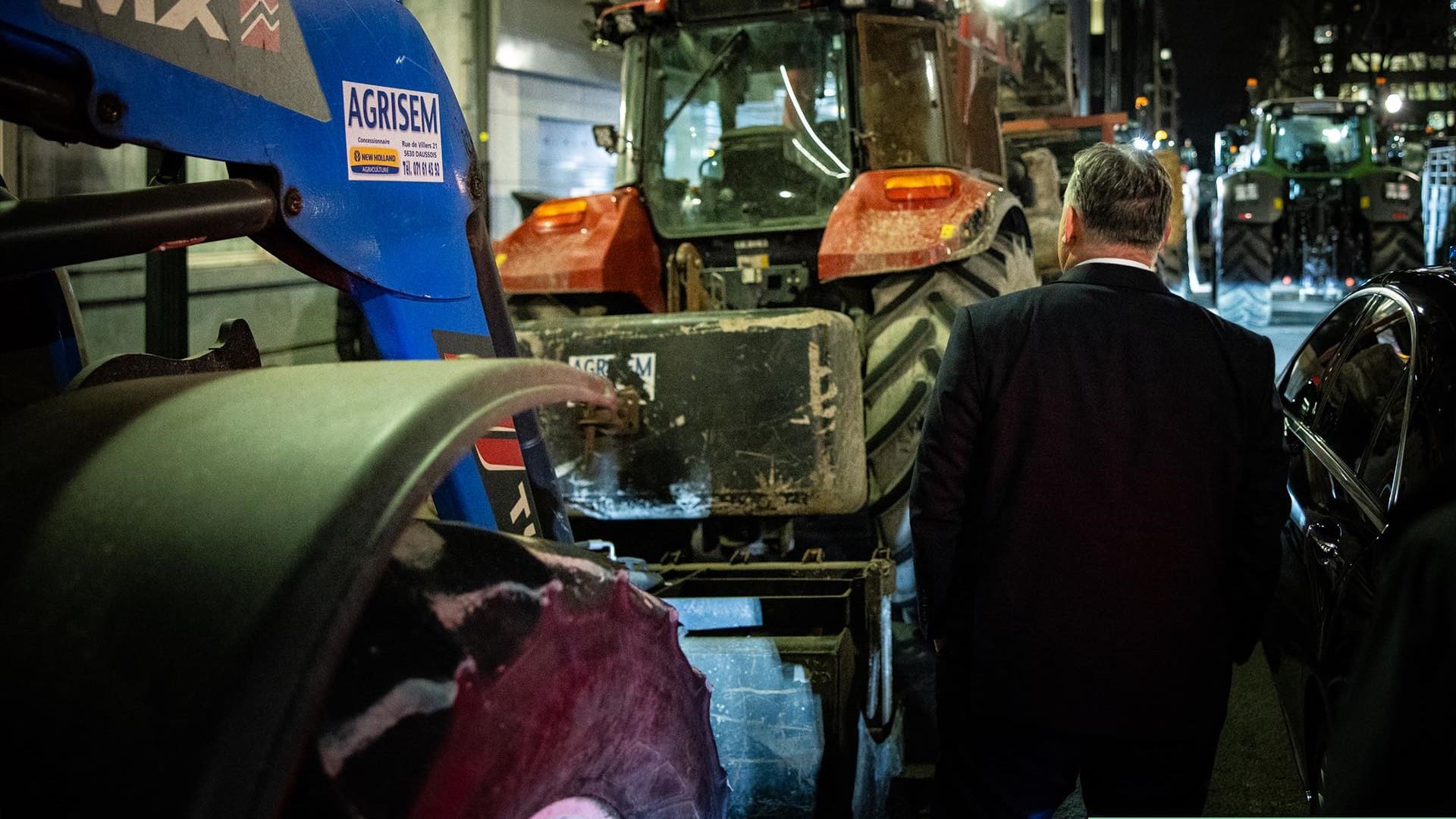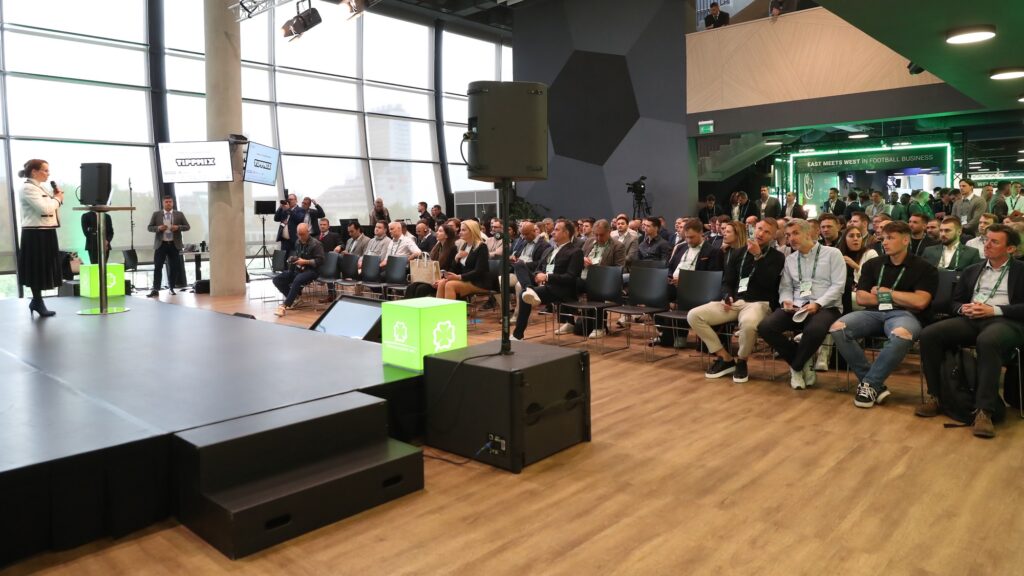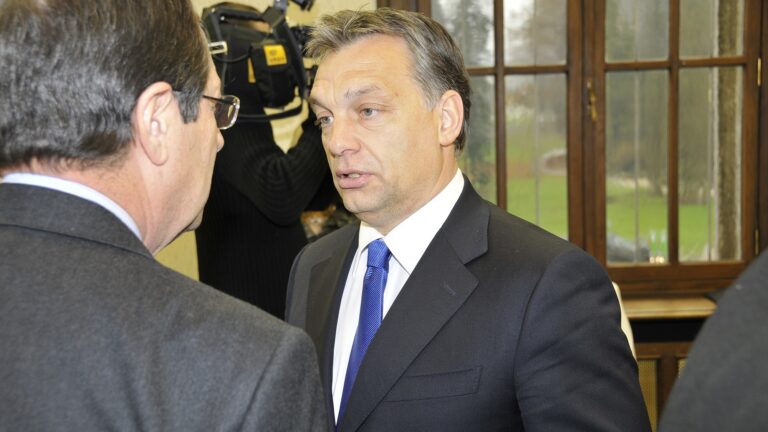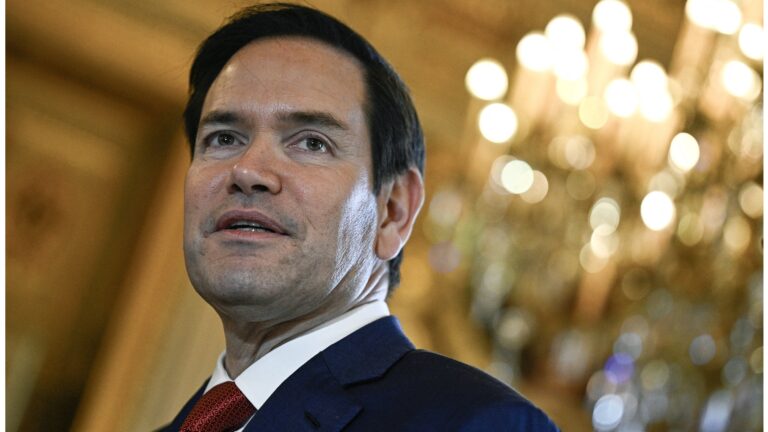On Wednesday evening, ahead of Thursday’s EU summit, Viktor Orbán travelled to Brussels, where he met Belgian farmers who have been demonstrating for days. Speaking to journalists, the Prime Minister said that new leaders and a new elite are needed in Europe, because at present the voice of the man in the street is not taken seriously, and this is a democratic deficit.
He emphasized that the European Union does not sufficiently respect the fact that agriculture is a crucial part of the European economy. In many countries, regulations unfavourable to farmers have been introduced, making their situation more difficult.
Viktor Orbán cited the controversial situation surrounding Ukrainian grain imports as an example, stating that the European Commission is prioritizing the interests of Ukrainian farmers over those of European farmers. He also argued that imports of Ukrainian products should be halted due to disparities in farming conditions, asserting that European farmers are suffering significant losses due to EU regulations.
As a solution to the problem, PM Orbán proposed a complete change of leadership in Brussels, asserting that
‘these leaders will never make decisions favourable to farmers.’
Belgian farmers are likely to agree, as they welcomed the Commission President to the EU summit on Wednesday evening with a huge banner reading ‘Ursula, we are here.’
Farmer protests have swept across Europe in recent weeks: from Germany, through France, Poland, Romania, Greece, and most recently Belgium, disgruntled farmers have taken to the streets. While the reasons may differ on some points, there is a general discontent with the Common Agricultural Policy (CAP) of the European Union. Additionally, the lack of regulation of grain imports from Ukraine and the failure to develop protection mechanisms for European farmers are common concerns, especially in Eastern European countries, which are the first to face the negative effects of the problem.
The problem for farmers is that the new Common Agricultural Policy (CAP) puts them at a severe disadvantage compared to farmers outside the EU in order to achieve the UN Sustainable Development Goals and the European Green Deal targets. Some farmers perceive the effects of these recent changes and EU green targets as unfair and challenging to manage, expressing concerns that these measures could jeopardize farming businesses. Luc Vernet of the Brussels-based think tank Farm Europe told the BBC: ‘Farmers are being required to do much more... with less support. They don’t see how they can cope any longer.’
It is important to note that these regulations were largely created and imposed on farmers by Green and Liberal MPs, politicians, and parties, while the right is working to mitigate some of the negative effects of the restrictions. Poland serves as a good example. The cabinet led by Donald Tusk, which took power last December, immediately pledged a complete reversal in Polish climate policy. Poland, heavily reliant on coal for most of its electricity, had previously sought to delay the full phase-out of coal from its energy mix. The Tusk-led government, however, announced the opposite: they aim to bring the end date closer and cut net greenhouse gas emissions by 90 per cent at the EU level by 2040. An accelerated transition
would not only negatively impact farmers but also affect Polish industry and consequently the entire economy.
European farmers have every right to feel betrayed and unrepresented, and in this light, it is not surprising that they view Viktor Orbán’s visit as a positive development. It is worth drawing a parallel between the Hungarian Prime Minister’s interaction with farmers and that of German (Green) Vice-Chancellor Robert Habeck. On 4 January, angry farmers ‘trapped’ Habeck, who was returning home from his holiday, but the crowd blockaded the harbour where his ferry was due to dock. Authorities described the situation as ‘extremely tense.’
Team Sotogrande 🇩🇪 🕊️ 🐴🐶 on Twitter: "The situation escalates. Economics Minister #Habeck comes from vacation on a ferry.The farmers try to storm the ferry.The hatred of the government is huge🔥🔥🔥. pic.twitter.com/3EjkY2FFWG / Twitter"
The situation escalates. Economics Minister #Habeck comes from vacation on a ferry.The farmers try to storm the ferry.The hatred of the government is huge🔥🔥🔥. pic.twitter.com/3EjkY2FFWG
On Thursday, farmers again voiced their discontent, setting fire to straw bales outside the European Parliament building in Brussels and sparking a minor clash between police and demonstrators. Illustrating how out of touch with reality the European Left is, Daniel Freund, the notably Hungarian-critical Green MEP, remarked: ‘Hey @MCC_Brussels & @BalazsOrban_HU, is that kind of violence being organized by you guys as well?’
So, the leftists seem to believe that it’s unlikely that a significant number of Europeans are unhappy with their policies but more plausible that organizations and politicians linked to the Hungarian government are organizing the protests.
Daniel Freund on Twitter: "Hey @MCC_Brussels & @BalazsOrban_HU,Is that kind of violence being "organized" by you guys as well? https://t.co/w3vUmUSe8d / Twitter"
Hey @MCC_Brussels & @BalazsOrban_HU,Is that kind of violence being "organized" by you guys as well? https://t.co/w3vUmUSe8d
The same is true for the Hungarian left. In 2005, serious farmer demonstrations erupted in Budapest, mainly due to unpaid EU subsidies. The situation escalated to the point where the farmers announced that they were no longer willing to negotiate with the then Minister of Agriculture and Rural Development, Imre Németh, insisting on continuing talks with Prime Minister Ferenc Gyurcsány.
However, Gyurcsány refused to negotiate with the farmers.
Fidesz, in opposition at the time, immediately sided with the agricultural producers, and the series of protests in 2005 became a key moment in the party’s later rural entrenchment.
Since then, the left has not learned from its mistake, consistently losing elections to Fidesz-KDNP. One significant reason for this is their inability to appeal to rural voters, including farmers.
The Hungarian left, aligning with the international mainstream, concentrates on issues that resonate with, at most, a narrow section of capital city residents: the constant blaming of Fidesz for concerns about the rule of law, discussions about dictatorship and authoritarianism, the alleged disenfranchisement of sexual minorities, and the list goes on.
An excellent example of the gap between the countryside and the left is their attitude toward Ukraine’s accession to the EU. While the Hungarian left is fully in favour of EU membership for a war-torn country facing economic and social challenges, they may not pay sufficient attention to the impact this would have on rural people and farmers.
Under the current EU funding system, Ukraine’s accession would result in minimal agricultural and cohesion funding for other Member States. The majority of agricultural subsidies are allocated per hectare, and the sheer size of Ukraine would potentially jeopardize family farms across Europe. The situation is equally discouraging for cohesion funding. The amount of cohesion funding per region is determined by the ratio of GDP per capita to the EU average. Regions eligible for support are those with a ratio below 75 per cent. Given Ukraine’s size and underdevelopment, it would likely fall well below the average, resulting in no regions outside Ukraine benefiting from cohesion funding. This would mean that Hungarian farmers would lose significant subsidies, and rural development in Hungary would not have access to EU funds to the same extent as before.
Related articles:








